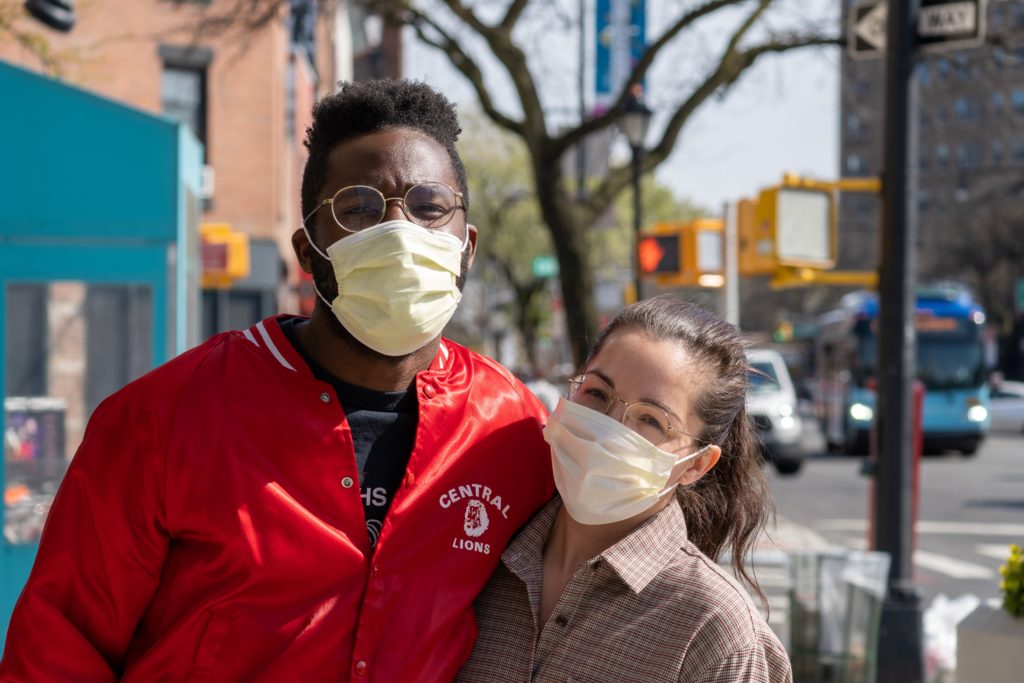
7 Essential Coronavirus Reads: Public Health Disparity, Air Quality Changes, Tobacco Control
The COVID-19 pandemic has impacted all our lives in ways we could hardly imagine. During these stressful and confusing times, we brought a weekly Coronavirus update to our newsletter readers. We sought to provide heavily researched, trustworthy information on the impact of the pandemic in public health, air quality, tobacco control, the environment and more. Some of the most interesting and important articles we read in the past two months are below, in no particular order. Although social distancing requirements are slowly changing, the need for comprehensive public health information is greater than ever.
Remember to wash your hands thoroughly, continue to socially distance yourself from others as much as possible and wear a mask whenever you cannot maintain a safe distance. Together we can build back better.
Note: Remember to always first check the CDC guidelines and your local public health office for updates on COVID-19.
1. From Vox: How to Weigh the Risk of Going Out in the Coronavirus Pandemic, In One Chart
Even as social distancing requirements loosen in different areas around California, it is still hugely important to maintain best practices in hygiene, social distancing when leaving your home or being around others. This clear and helpful guide makes it easy to stay safe and to keep others safe as well by offering guidance for different activities.
2. From The Sacramento Bee: Study: World Carbon Pollution Falls 17% During Pandemic Peak
The world cut its daily carbon dioxide emissions by 17% at the peak of the pandemic shutdown last month. But with life and emissions beginning to return to pre-Coronavirus rates, scientists say that the brief pollution break will likely be “a drop in the ocean” when it comes to climate change. Read this article for a better understanding on our environmental impact and more information on these statistics.
For a better visualization of the Coronavirus impact on the environment, read this informative article from Nature.
3. From Reuters: Green Recovery Can Revive Virus-Hit Economies and Tackle Climate Change
Top U.S. and British economists say that green public investment would be the most cost-effective way both to revive virus-hit economies and strike a decisive blow against climate change. Read this study for an in-depth look into the goal to “build back better.” Nature Journal continues the conversation in, Include the True Value of Nature When Rebuilding Economies After Coronavirus. Financial institutions are becoming more aware of the grave importance of ecological stability during these uncertain times. This article reflects on how economies can prioritize sustainability as they rebuild.
4. From Scientific American: How a Warming Climate Could Affect the Spread of Diseases Similar to COVID-19
A hotter planet could change the relationship among infectious agents, their hosts and the human body’s defense mechanisms. These changes could include the adaptation of microbes to a warming world, changes in how viruses and bacteria interact with their animal hosts, and a weakened human immune response. Scientific American continues to educate on the devastation caused by deforestation in the article, Stopping Deforestation Can Prevent Pandemics. The article explains that destroying habitats makes viruses and other pathogens more likely to infect humans. Three quarters of the emerging pathogens that infect humans leaped from animals indigenous to the forest habitats that are being slashed and burned to create land for crops, including biofuel plants, for mining and housing.
5. From APM Research Lab: The Color of Coronavirus: COVID-19 Deaths by Race and Ethnicity in the U.S.
While we have an incomplete picture of the toll of COVID-19, the existing data reveals deep inequities by race, most dramatically for Black Americans. Data from this study reveals that “the latest overall COVID-19 mortality rate for Black Americans is 2.4 times as high as the rate for whites and 2.2 times as high as the rate for Asians and Latinos.” And For Native Americans, COVID-19 is ‘The Worst of Both Worlds at the Same Time.’ This article from the Harvard Gazette explains, “With tribal businesses halted and their services in peril, the economic impact of COVID-19 on Native American communities could be devastating.” Native American communities are losing their only source of income in order to protect their people and land during pandemic.
6. From Science X (Phys Org): The Dual Risks of Natural Disasters and COVID-19
What happens when crises occur simultaneously? This article examines emergency responses for many natural disasters, like wildfires, and how they pose risks to public health during a pandemic. In times of crisis, continued environmental protections will only help us recover. For more on this, read this article from Foreign Policy in Focus: This Year’s Forest Fire Season Could Be Even Deadlier. This article delves into governments grappling with public health and safety during COVID-19 rolling back enforcement of environmental protections that are crucial for preventing wildfires, protecting lives, and limiting deforestation. Environmental enforcement has continued to drop during the pandemic, with preliminary estimates of rain forest loss up by 50% in 2020 compared with last year, according to government data in Brazil.
7. From UCSF Center for Tobacco Control Research and Education: Smoking Makes COVID-19 Worse: UCSF Analysis Finds a Near Doubling in Risk of Disease Progression
This article highlights the truth of how smoking doubles your risk for severe COVID-19 symptoms. Stanton Glantz PhD, debunks myths around smoking and explains why smoking increases risk for the virus. For more on Big Tobacco’s marketing tactics during the pandemic, read this article from PR Week: ‘Big Tobacco’ Using COVID-19 Messaging and Influencers to Market Product. An analysis from the Campaign for Tobacco Free Kids on social media and influencer posts found evidence of tobacco companies using #StayAtHome and giveaways, including branded masks, to market e-cigarettes, vapes and other heated tobacco products.
If you would like to receive the Breathe newsletter with COVID-19 updates twice monthly and Breathe updates once a month, sign up here.
Photo by Julian Wan on Unsplash